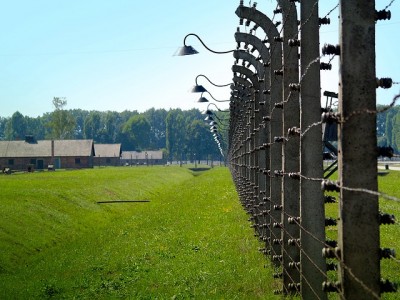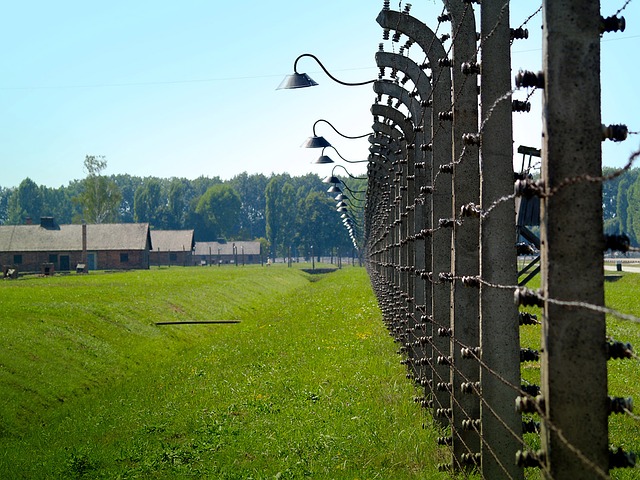
On a scorching day, during my Holocaust studies trip to Poland in the summer of 2012, a fellow student and I wandered through Birkenau like ghosts, pale despite the fact that the July sun was burning our backs, pondering the same question. It was the same question that we, and several others of our peers had been up into the late hours of the night discussing, and one that had been on my mind since the beginning of the trip. Though we reached loose conclusions, it’s a question that perpetually resurfaces in my mind, and as I lit my Yom HaShoah candle on Sunday evening, singing Hanna Szenes’ “Eli, Eli,” I found myself asking once again whether I had any right to feel pain or sadness of my own after learning of the suffering that victims and survivors had experienced during the Shoah, and the suffering that people afflicted by prejudice and genocide still feel today.
The Internet constantly reminds me to “check my privileges,” and this is something that I constantly try to do. I live in twenty-first century America. I have white skin. I come from a relatively well-off family and am attending an elite American university. Yes, anti-Semitism still exists in this world—more than I think many of us like to admit—but I have never lived in an environment where it is rampant. By all objective standards, I have a wonderful life. And certainly, I have never had to worry about being forced to move to ghettos, about expulsions in suffocating box-cars to death camps, about not knowing whether my family members had survived or whether I was looking at their remains as I watched smoke billow into the Poland sky. Yet, I am a human being, and as a human being, I sometimes experience pain. When circumstances—though no circumstances as severe as those experienced during genocides—occur in unfavorable ways, when people close to me are ill or, when, God forbid, people I know have passed away, I too have been incredibly sad. Sometimes, I’ve questioned whether I have the right.
I think the answer lies in one of the first things I remember being told about the Holocaust. In sixth-grade religious school, I remember my instructor remarking that there were two primary religious responses to the Holocaust: some survivors relinquished faith and others became more religious. The most crucial thing, however, was what he said after: “We didn’t see what they see, so we cannot judge what they did.” The older I have grown, the more relevant this seems. It is vital that we try to connect to the Holocaust, that we uphold its memory and the stories of its victims and survivors. It’s vital that we examine ourselves for demons that might become bystanders or perpetrators. It’s vital that we remember the Holocaust as genocide so that we take action to end current genocides. And yet with all these efforts, and despite what children’s books like Jane Yolen’s The Devil’s Arithmetic would have us believe, it is impossible for us to fully put ourselves in the position of a victim or survivor of this catastrophe, however hard we try, however close some of us might be able to get.
So, yes, we cry over things that pale in comparison with the horrors of genocide. But our lives are the only frame of reference we have. Sometimes, though not on the same level as the murders of millions, we have legitimate reasons for feeling deep pain. And to shame ourselves for our feelings will not help us remember the Holocaust; it will only add to our personal turmoil.
Dani Plung is a student at the University of Chicago.

